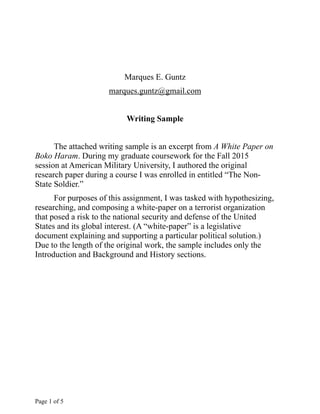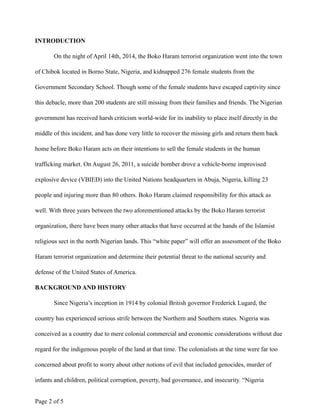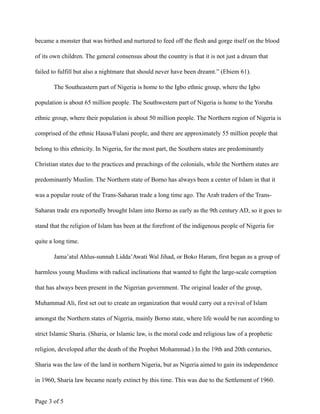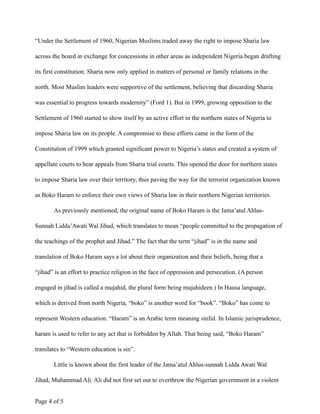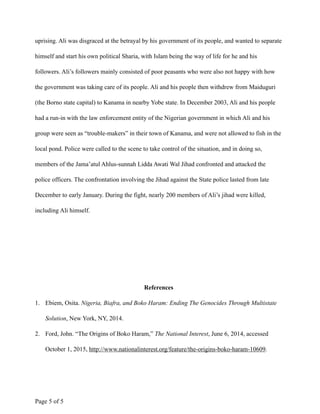The document is a writing sample from Marques Guntz about his research paper on the Boko Haram terrorist organization. It includes an introduction summarizing two major Boko Haram attacks, and a background section covering the history of Nigeria, the origins of Boko Haram, and its original leader Muhammad Ali. The introduction analyzes Boko Haram's kidnapping of 276 girls in Chibok and a 2011 suicide bombing in Abuja. The background details Nigeria's colonial history, ethnic and religious divisions, and how Boko Haram formed to promote strict Sharia law before confronting police in 2003, killing Ali.
